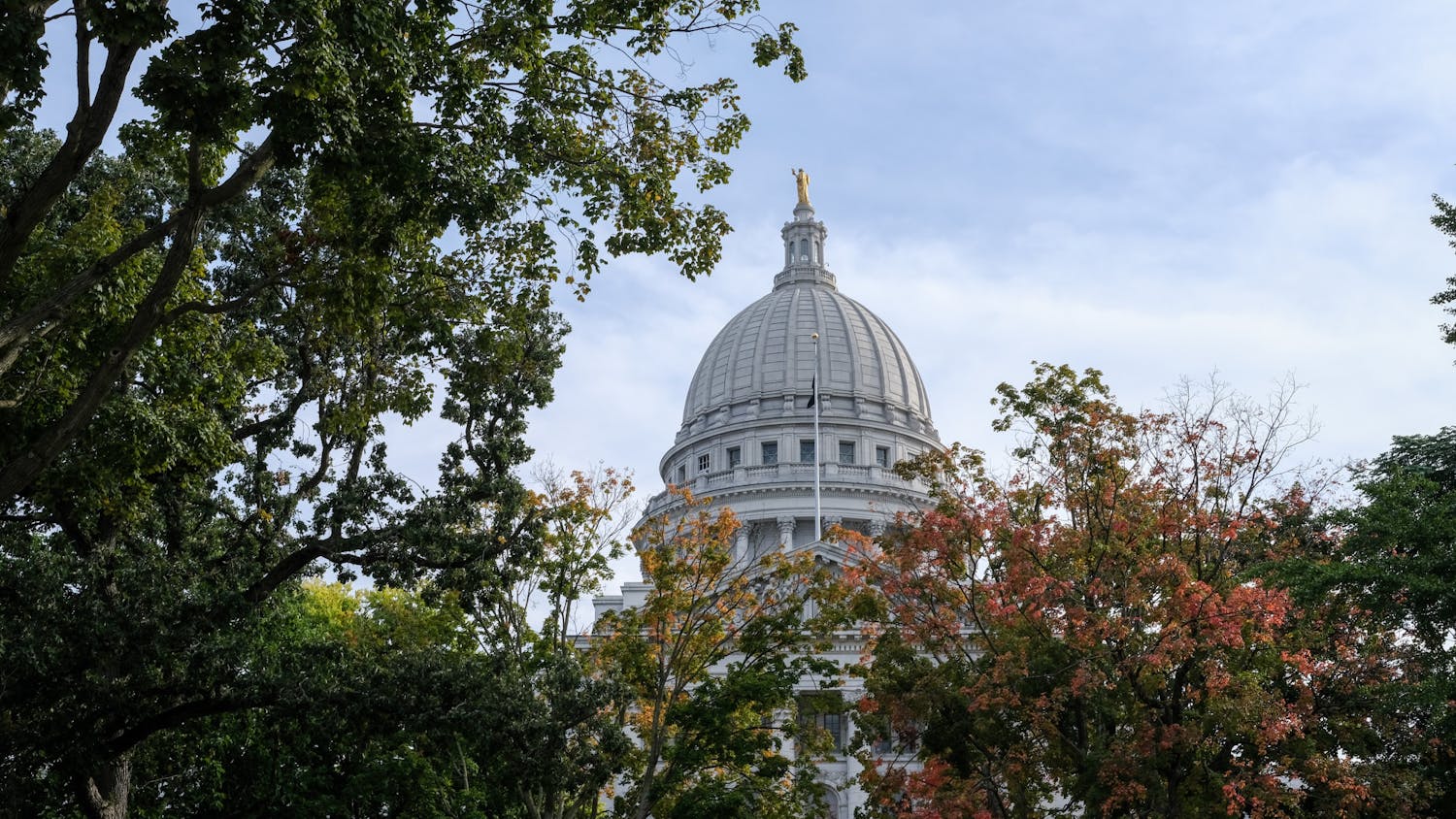Like the emergence of flowers in May, the issue of binge drinking emerges sometime around March. Last year, it was the fight over the University Square Theatre's liquor license. This year, it is Chancellor John Wiley's favorite'the elimination of drink specials.
That the issue keeps coming up every year is a testament to how much UW-Madison students drink. It is no wonder the alcohol industry has targeted college students in advertisements, especially with unique party-alcohol niche products such as Kahlua or Smirnoff mixed drinks. The lines outside bars, the dorm-room parties you think your house fellow doesn't know about and the crowded basement parties all continue to thrive.
Eliminating drink specials has been a favorite solution among UW-Madison administrators to help stop binge drinking and make Madison a safer city. The argument is that if bars are prevented from selling drinks at half the cost through drink specials, the poor college bar patrons will trudge back to their homes without consuming too much alcohol. This will make State Street safer for the average late-night pedestrian and keep the police from devoting the majority of their time enforcing bar regulations.
If eliminating drink specials could solve the problem of drunken students vandalizing State Street or endangering their own lives and those of everyone around them, I would have no problem supporting the initiative. However, students will find ways to drink that involve more dangerous situations, like the basement of a stranger's house or a fraternity-sponsored social. Bars still provide the best place to monitor the behavior of problem drinkers, and can be easily targeted by police.
Despite the relative ineffectiveness of targeting drink specials, it is still good to see ideas being offered to address UW-Madison's binge drinking. With the statistics for on-campus rapes now reflecting a more realistic number and dangerous drinkers remaining prevalent throughout campus, it is time to recognize UW-Madison's problem.
In fact, the problem is a lot like alcoholism. Right now, a too many UW-Madison's students feel fine going out and drinking large amounts of alcohol, losing control of their bodies. There is little recognition of the dangers of constant binge drinking, or the self-destructive tendencies that emerge when things get out of control.
Like alcoholism, the first step is recognizing the problem. For the past few decades, UW-Madison was in denial. Then came warning signs, like appearances at the top of polls rating the nation's party schools and the publication of major studies that found levels of binge drinking in Madison rising faster than most Big Ten schools.
Only now the issue has become one of public debate. Yet, it has really only been debated among UW-Madison's administration and a few committed volunteer organizations that have first-hand experience with what being too drunk to control yourself means to, for instance, women.
There has been little student leadership from organizations like the Associated Students of Madison, which tend to view \alcohol issues"" as relating to whether the police officer had the right to ticket a student for underage drinking just because he ran screaming down the street at 4 a.m.
Students for the Legalization of Marijuana has more clout in ASM than the Robert Wood Johnson Foundation, which has been committed to making alcohol abuse an issue for the past three years. The reality is, though the administration and the RWJ Foundation may have realized the problem, the university's students have not.
A study released by the U.S. Department of Education's Office of Educational Research and Improvement concluded that part of the problem of alcohol abuse on college campuses is related to not establishing ""high, but realistic, expectations for students and faculty"" that ""they will be responsible for their own affairs.""
The recommendations given to solve this problem relied on students taking the initiative to deal with student-related problems. It is safe to say that UW-Madison has seen very few successful, student-led campaigns targeted at binge drinking specifically. The subject is almost taboo. Instead, groups couple their messages of stopping rape with pleas to ""drink responsibly.""
If UW-Madison is finally going to address its binge drinking, the students at UW-Madison will need to recognize the problem. This can only occur from strong student leadership specifically critical of the party-every-weekend mentality. Otherwise, the best the administration can do is to suggest well-meaning, but ultimately ineffective measures like eliminating drink specials.





